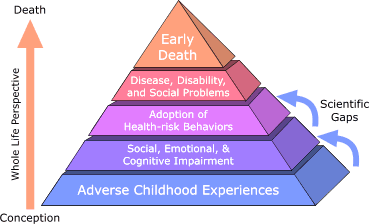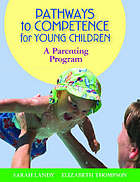
OUR SERVICES
Here's how we help!
SELECT FROM IPEMH's
THREE MAIN SERVICE OFFERINGS:
Early Intervention and Prevention Services for Children 0-6 Years

Do you have any questions about your young child's development? Early Intervention and Prevention Services are available to support parents and infant/toddlers through screening and assessments who maybe at risk for; development, behavior, trauma & communication challenges.

Play Therapy & Social Skills Development for Children 7 and UP ↑
Therapy sessions are tailored for each child’s needs or challenges using an integrated approach to treatment that includes play therapy, and the development of prosocial skills.
Evidenced Based Early Intervention Programs

Early Intervention Programs are family focused interventions that can be delivered in group format as a dyadic intervention. These programs provide psychoeducation, parenting skills that support young children's social and emotional development. Program outcomes include; enhanced parent-child attachment, improved parent sense of self and emotional regulation.
Early Intervention and Prevention Services for Children 0-6 years

Help me Grow! Developmental Support Plans
Starting at birth and continuing throughout childhood, children reach milestones in how they play, learn, speak, act, and move. Skills such as taking a first step, smiling for the first time, and waving "bye-bye" are called developmental milestones. Children develop at their own pace, so it can be difficult to tell exactly when a child will learn a given skill. However, developmental milestones give a general idea of the changes to expect as a child gets older.
Developmental and behavioral screening plays an important role in early detection and obtaining appropriate supports for children who may be experiencing delays for any number reasons.
A Developmental Support Plan is an individualized plan developed for young children in key areas of child development namely: communication, problem solving, personal-social, gross motor and fine motor.
The purpose of the Developmental Support Plans is to:
-
Support the child’s development
-
Provide strategies that can foster child’s development while he or she may not have access to services.
-
Provide simple everyday strategies and activities to help a child reach appropriate developmental goals in a culturally appropriate and strength-based way.
-
Using play, song, games as the vehicle to give your child an opportunity to develop a new skill and meet milestones.
-
Provide an opportunity for parents/families to collaborate on a child’s development
-
Help parents and/or caregivers understand the type of experiences their child needs to meet their next developmental milestone.


Positive Behavior Support Plans
Positive Behavior Support Plans are for young children at risk for challenging behaviors or showing evidence to be at risk in the areas of social and emotional development. PBSP address challenges in areas such as:
-
aggression
-
difficulties in behavior
-
regulation and executive functioning
PBSPs move away from managing behaviors but instead utilizes interventions that focus on parent-child attachment, co-regulation, temperament, stress and developing prosocial skills. The plan is specifically tailored for a child and family along with the child and parent participating in one of IPEMH evidenced – based programs.

Developmental Trauma and ACES
Childhood Trauma and Adversity can come in many forms and in young children signs and symptoms may differ. Trauma can affect young children’s emotions, behavior, cognition, physical health and relationships.
Developmental Trauma is, “Multiple exposures to interpersonal trauma (abandonment, emotional neglect, physical, sexual abuse, domestic violence that have consistent and predictable consequences that affect many areas of functioning in young children”. (van der kolk, 2005).
Treatment interventions are trauma informed with a developmental lens, multi-modal use of interventions, with the goal of recovery for the child from the traumatic experience and to support the parent’s capacity for self-protection and protection of the child as the cornerstone of treatment.
When assessing children for Trauma we must assess for risk of Adverse Childhood Experiences (ACE’S). Increasing research and clinical evidence show that the early years of life have a unique and formative impact on development, relationships, and functioning through out life. Many adverse outcomes can be prevented when parents are provided with support and information that enables them to be optimally responsive to their infants and young children - increasing protective factors, reducing toxic stress and fostering resilience.
Interventions for young children and parents will differ depending on risks and issues identified.


Therapeutic Parenting
Parent interactions with young children are important influences on a child’s development. There are not a lot of supports for parents with infants and young children. Sometimes parents can feel, overwhelmed, isolated, unsure and even depressed. My role is to help strengthen parents’ sense of competence, self-esteem and to help them understand their child’s development. Parent support is offered through Dyadic Parent-Infant/Child Therapy.
Play Therapy and Social Skills Development for Children 7 and UP ↑
For children, positive social and emotional development is the cornerstone for success in school and in life. Healthy social and emotional development is critical for healthy mental health.
A positive, and non-judgmental space is provided for children where they can feel safe to express their emotional needs. A therapeutic relationship is important to the therapeutic process and every child deserves support and encouragement to reach their full potential.
Therapy sessions are tailored for each child’s needs or challenges using an integrated approach to treatment that includes play therapy, and the development of prosocial skills.
“Fish swim, birds fly, children play”- Dr. Gary Landreth





Evidenced Based Early Intervention Programs
Infants experience themselves and the world within the context of relationship. Brain studies have recently confirmed this theory by demonstrating how neural pathways are enhanced by nurturing, responsive caregiver input that fosters a healthy relationship.

Circle of Security Parenting Program
The Circle of Security Parenting Training is a relationship based early intervention program designed to enhance attachment security interactions in high-risk mother-child dyads.
Decades of university-based research have confirmed that secure children exhibit increased empathy, greater self-esteem, better relationships with parents and peers, enhanced school readiness, and an increased capacity to handle emotions more effectively when compared with children who are not secure.

Making the Connection: The First Three Years (MTC 0-3)
Making the Connection can be seen as a Universal Prevention Program. The focus of Making the Connection (MTC: 0-3) is to identify at risk young children for developmental delay, identified special needs or have experienced trauma.
It focuses on multi-risk parents who need supports. It is offered as a first stage prevention program for infants at risk of attachment or communication problems due to infant factors such as low birth weight or a sensitive temperament or due to parenting factors such as poor parenting history, being a teen or lack of parenting support.

Kids Have Stress Too!
“A child’s ability to cope with stress in the early years has consequences for physical and emotional health throughout life”. National Scientific Council on the Developing Child. (2005)
Kids Have Stress Too! (KHST!) is a research-based primary prevention program designed to help parents and early educators understand childhood stress and how to provide children with the tools to deal with stress effectively. The program is grounded in principles of resilience and self-regulation for children with the support of adults.
The program helps parents and early educators understand the impact of stress on young children, how to recognize and respond to stress in children and also how relationships with caregivers and educators plays an important role on how children manage stress. The program comes with a tool-kit resource with age-appropriate stress management techniques to teach children to relax and become more resilient.

Pathways to Competence: A Parenting Program
Pathways to Competence is an evidenced based parenting program based on enhancing social and emotional development in young children. It is designed for parents with children birth to age seven and can be used with many populations such as; new parents, women with children who have experienced abuse by partners, parents with young children who are aggressive/non-compliant, teen parents, and with parents with unresolved loss or trauma.

Ready Set Go! A School Readiness Program
Do you know that brains are built from the bottom up and there are certain specific things that caregivers and early educators can do to ensure that young children are school ready.
Ready Set Go! is a 4-week group program that helps prepare young children for pre-school and kindergarten. It focuses teaching young children the skills needed for school readiness.

Trainings and Consultations
Infant Parent and Early Childhood Services offers trainings/workshops for early educators and professionals working with young children.
In-service- clinics are also available to pediatricians and therapists. Give us a call to learn about the topics that we offer.
